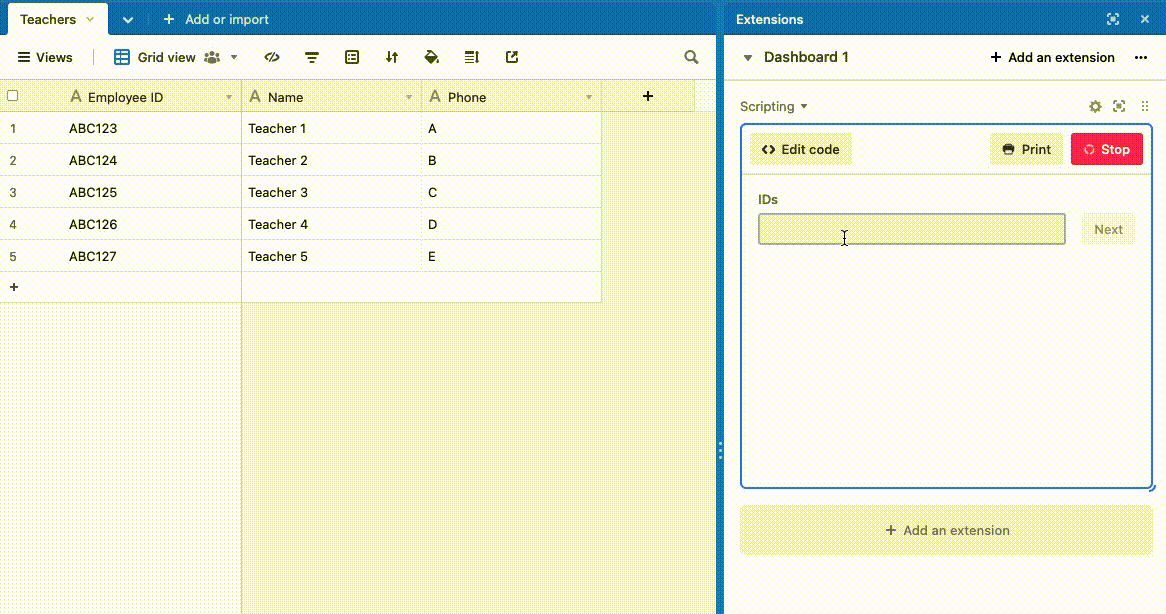Hello,
Can I search my tables for multiple keyword entries at once?
For instance, I have a large number of members of my teachers’ union on a table that includes a bunch of info about them, organized by 1 entry per individual with all their details as fields in that entry.
I’d like to look up phone numbers for 50 people, but I only have their employee ID.
Employee ID and Phone # are both fields for each entry, but I’d prefer to copy paste the 50 ID#s into a search that calls up all the entries, than have to copy/paste one employee ID at a time.
I have been using the Search extension, but it seems to only take one keyword search value at a time.
Is there someway I can search multiple values at once?
Thanks!
Jacob




